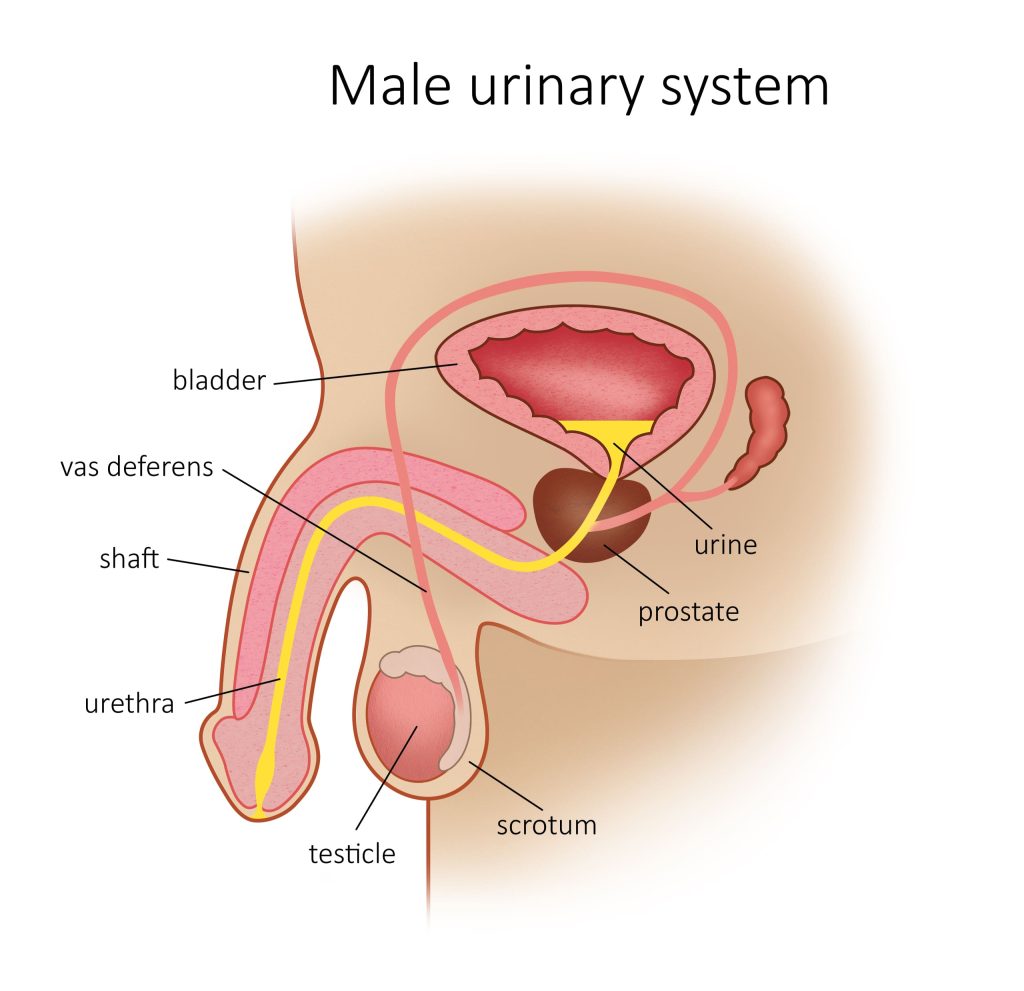Urinary tract infection (UTI) is often uncomplicated and straightforward to treat. It can, however, sometimes turn into acute cystitis and have more severe health consequences.
DESCRIPTION AND PREVALENCE
UTI is deemed uncomplicated when it occurs acutely or sporadically in a healthy person. Acute cystitis is defined by at least three episodes of urinary tract infection during 12 consecutive months. It can be complicated in pregnant women, men with benign prostatic hyperplasia and urinary voiding problems, or a person who regularly catheterizes.
However, 20 to 30 per cent of women who have had acute cystitis have a recurrence. Among them, 25 per cent will have recurrent urinary tract infections, that’s to say more than three episodes per year. In most cases, this is a new urinary tract infection called reinfection. It may recur quickly, two to four weeks after the initial treatment. In this case, it may be a persistent infection due to bacterial resistance, inadequate treatment or an anatomical or functional abnormality of the urinary tract.
Asymptomatic bacteriuria refers to bacteria in the urine in the absence of symptoms or clinical signs.



What are the signs and symptoms of urinary infection?
- Burning sensation or pain when urinating
- Pollakiuria, frequent daytime urination
- Dysuria, difficulty urinating
- Hematuria, blood in the urine
- Pelvic pain
- Cloudy or foul-smelling urine (this symptom is non-specific if it’s the only one)
What are the possible causes of urinary infection?
- Use of urinary catheters
- Malformations of the genitourinary system
- Kidney stones
- Dehydration
- Constipation
- Urinary voiding problems
- Sexual activity
- Menopause
What diagnostic exams are available at Les Cliniques Marois?
- Complete anamnesis, covering lifestyle and medical history.
- Physical examination.
- Urinalysis, an exam that detects various substances in the urine, such as white or red blood cells, proteins, glucose and ketones. This exam is not specific to UTIs.
- Urine culture, a test in which bacteria from a urine sample are monitored in a laboratory. This exam is specific for a UTI diagnosis.
- Cystoscopy or urodynamic assessment if factors complicate the initial profile.
What treatments are available for cystitis?
-
- For fewer than 12 episodes per year, cystitis is treated with short-term antibiotic treatments.
- Beyond 12 episodes per year, prophylactic treatment with long-acting, low-dose antibiotics is recommended.
- Lifestyle modifications can help prevent recurrences of urinary tract infections when no contributing cause is found and treated:
- Urinate regularly during the day and avoid “holding it”
- Drink 1.5 litres of water per day
- Wipe from front to back after a bowel movement
- Practice healthy eating habits that enable regular bowel movements
- Clean externally once a day
- In the case of recurrent post-coital cystitis, make a habit of urinating after sexual intercourse.
- The right dose of cranberry juice is effective against recurrent E. coli cystitis. Cranberries contain proanthocyanidins (PACs) that prevent the attachment of E. coli to the bladder’s walls. The dosage must be 36 mg of PAC per day for at least three months to be effective.
- After menopause, local hormone therapies like estrogen can prevent recurrent UTIs.
- No treatment is recommended for asymptomatic bacteriuria.
References
- https://www.inspq.qc.ca/pdf/publications/1932_Prevention_Infections_Urinaires_Catheters.pdf
- https://www.inesss.qc.ca/fileadmin/doc/CDM/UsageOptimal/Guides-serieI/Guide_InfectionUrinaire.pdf
- www.cua.org: Urinary tract infections and uncomplicated urinary tract infections in women: an AUA, 'AUC, and SUFU practice guide, 2019.


